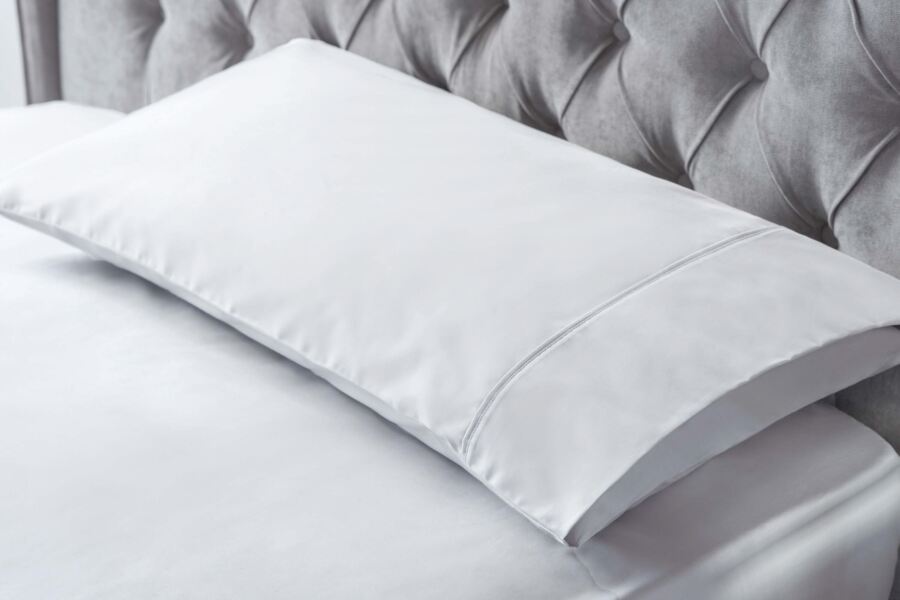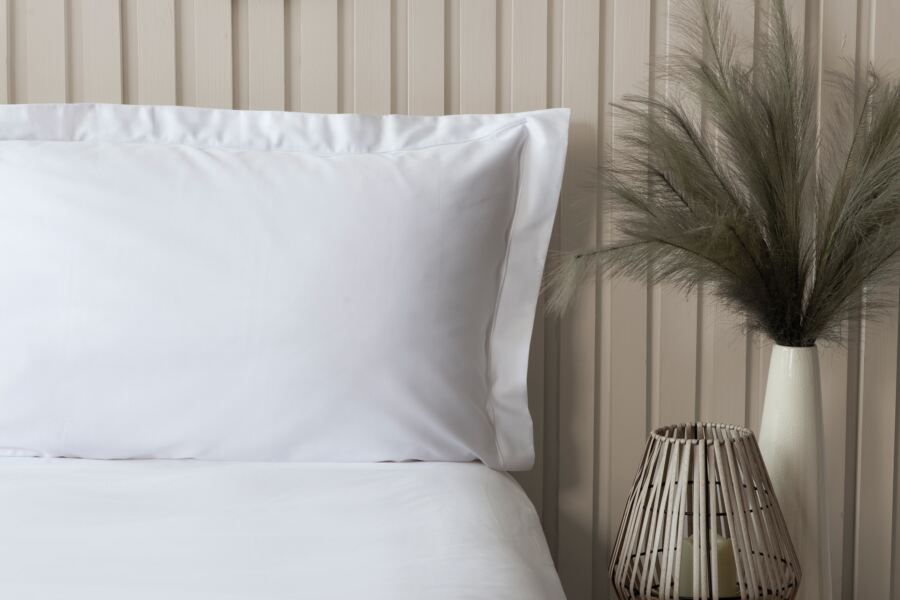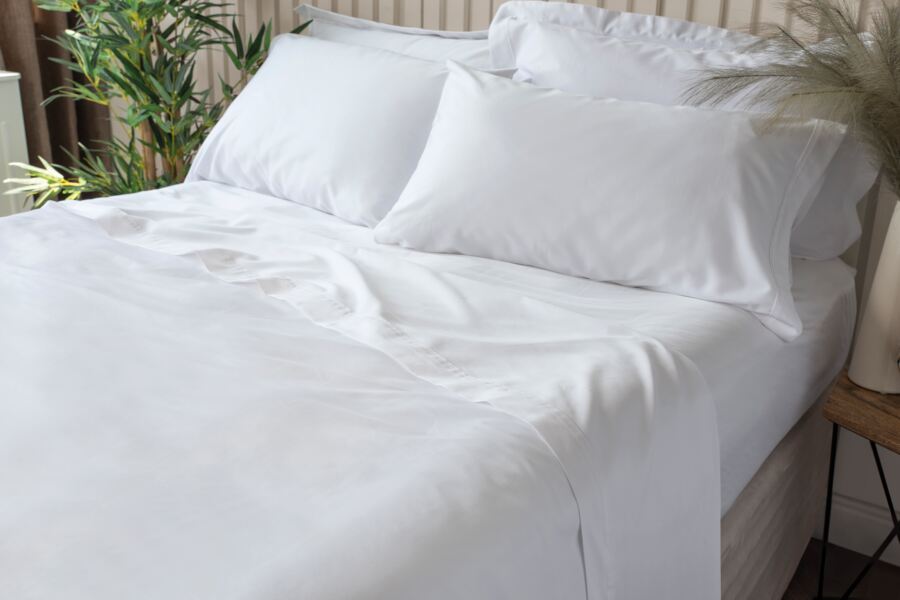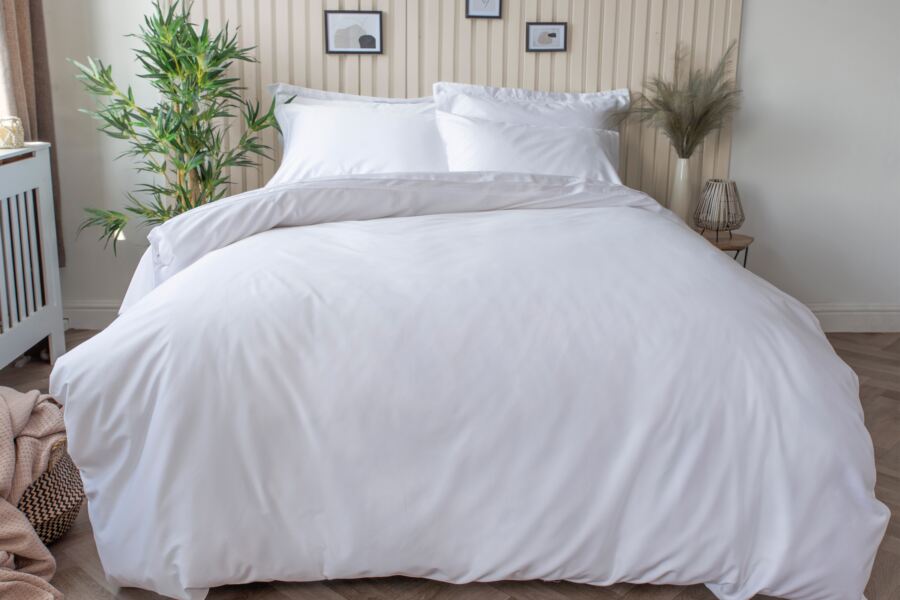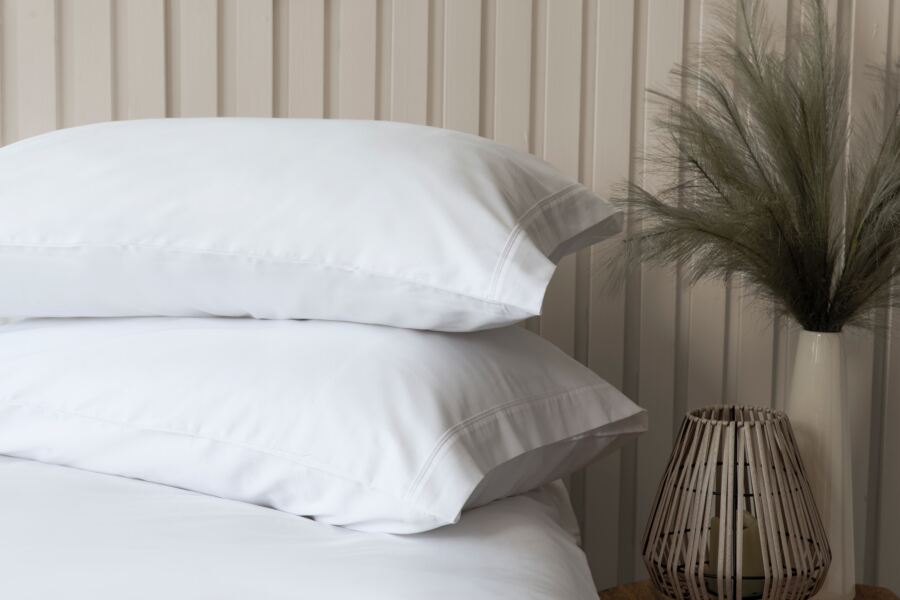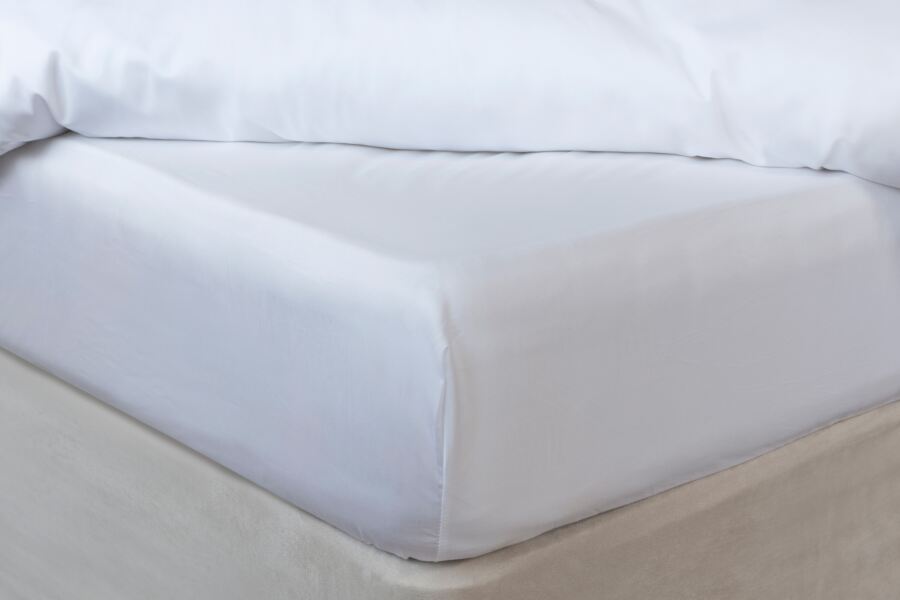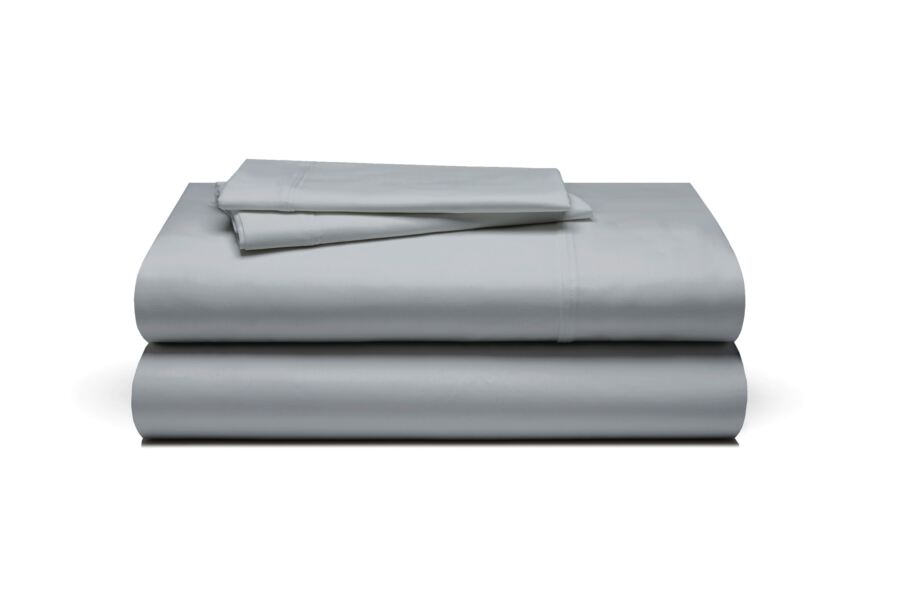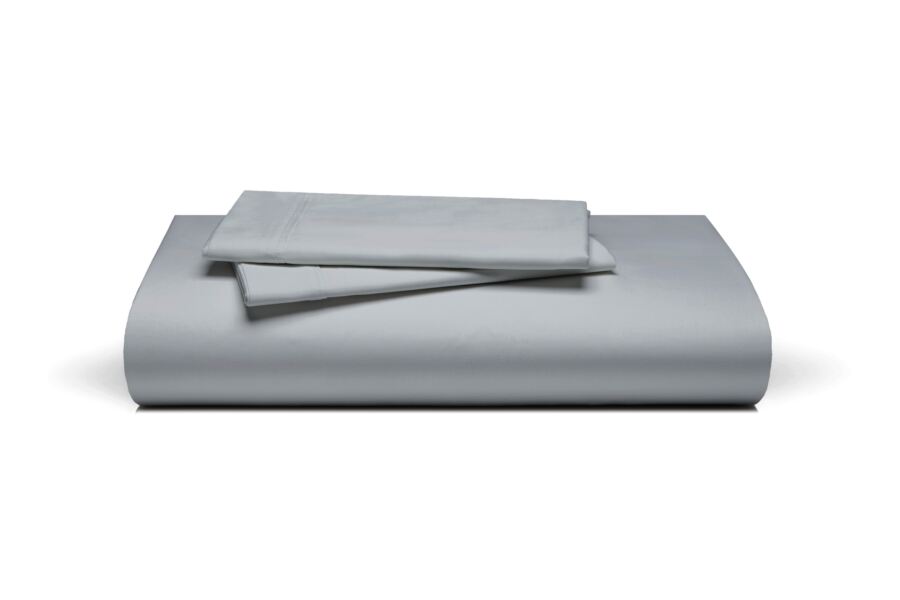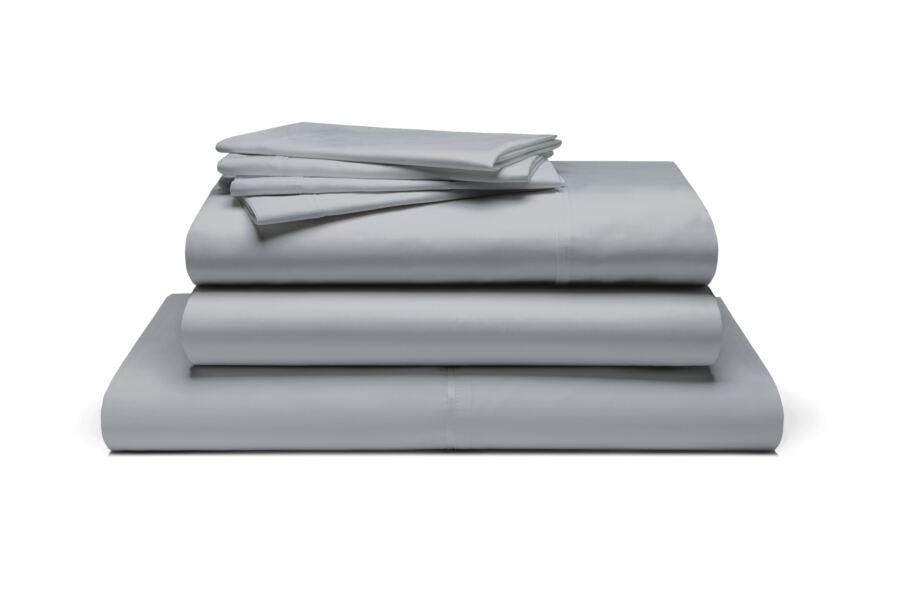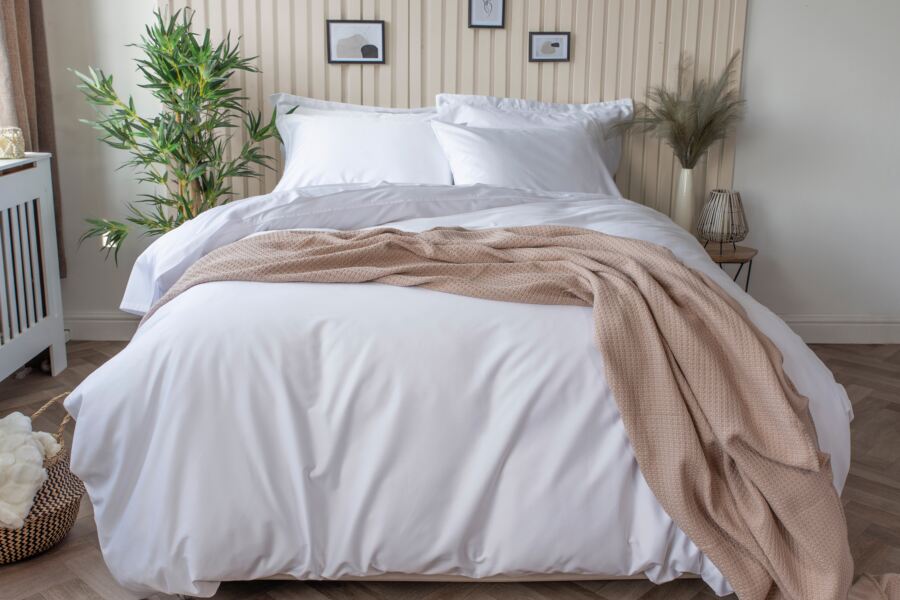Table of Contents
- What Is Bamboo Bedding?
- Types Of Bamboo Fibre
- Advantages Of Bamboo Bedding
- How To Care For Bamboo Bedding
- FAQs
- Final Thoughts
In a world that is increasingly focused on eco-conscious living, bamboo has become a prime alternative to traditional bed linens. But what exactly is bamboo bed linen, and why is it so popular?
If you're tired of sleeping on the same old cotton sheets night after night, you're not alone. In this article, we'll explore the types of linens you can buy, the advantages of bamboo, and how to care for this luxurious bedding.
So, if you're ready to upgrade your sleeping experience from drab to fab, then we've got you covered. Grab your pillows and get tucked in, because we're about to get into it.
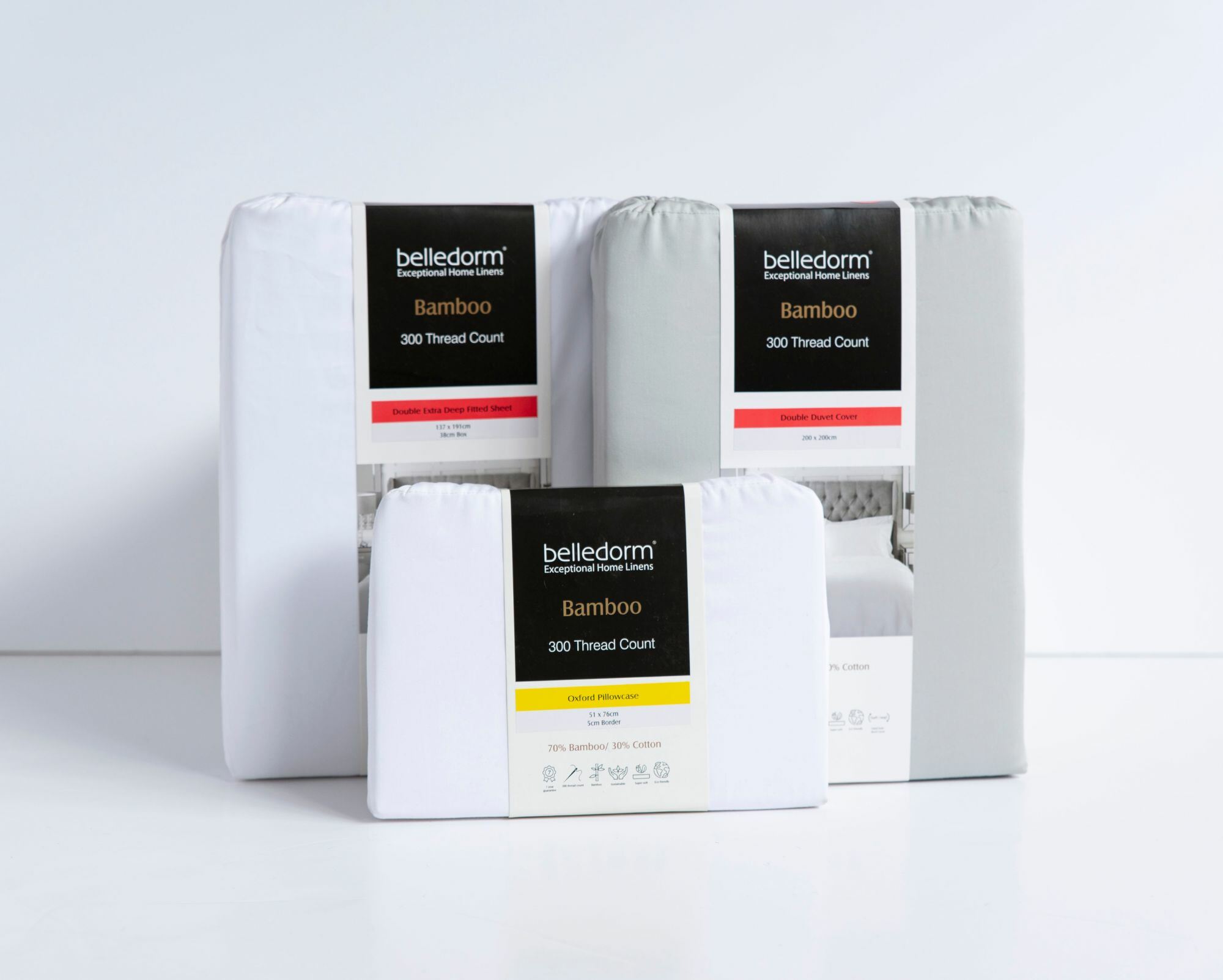
What Is Bamboo Bedding?
Bamboo bedding typically refers to bed sheets, pillowcases, duvet covers, and any other bedding products that are made from the bamboo plant.
Generally, the fibres used in bamboo bedding are derived from the pulp of bamboo plants. This pulp is processed and turned into yarn, which is then spun into the gorgeous fabric that you use for your bedding.
There are also different methods for producing bamboo fabrics, which include either mechanical or chemical processes.
The mechanical method involves crushing the bamboo stalks and using natural enzymes to break them down into fibres. On the other hand, the chemical method uses special solvents to extract the fibres. Either way, the results are amazing!
When you're purchasing bamboo linen, it's important to look out for products that are labelled as 'bamboo' for marketing purposes. Instead, be sure to check the label or product description to ensure you're getting 100% high-quality bamboo sheets and bedding.
Types Of Bamboo Fibre
While bamboo fibres have gained a lot of popularity for their sustainable and eco-friendly reputation, the manufacturing process for bamboo rayon and lyocell can involve chemical treatments. Therefore, it's important to know what type of bamboo sheets you're buying.
Generally, there are three main types of bamboo fibres. These include:
Bamboo rayon
Bamboo rayon, also known as viscose rayon, is the most widely used type of bamboo fibre. This fibre is made through a chemical process where the bamboo pulp is dissolved in a chemical solvent and then extruded to form fibres. These fibres are then spun into the yarn that is used to make the fabric.
Rayon fibres are soft, breathable, and have a naturally silky texture to them.
Bamboo linen
Linen fibres usually try to replicate the properties of traditional linen fabric. These fibres are made by mechanically processing the bamboo stalks to extract the long fibres that are eventually spun.
Linen made from bamboo is typically textured and has a slightly rougher feel compared to rayon bamboo, but it still offers good breathability and moisture-wicking properties.
Bamboo Lyocell
Bamboo Lyocell, also known as Tencel, is a type of bamboo fibre that is made using a solvent-spinning process that is similar to rayon bamboo. Still, the key difference between these two types of fibres is that the solvent used for lyocell is non-toxic and can be recycled. This makes Lyocell the more eco-conscious choice if you're after bedding with more sustainable practices.
Not only is Lyocell the greener choice, but it also makes a softer and more durable fabric.
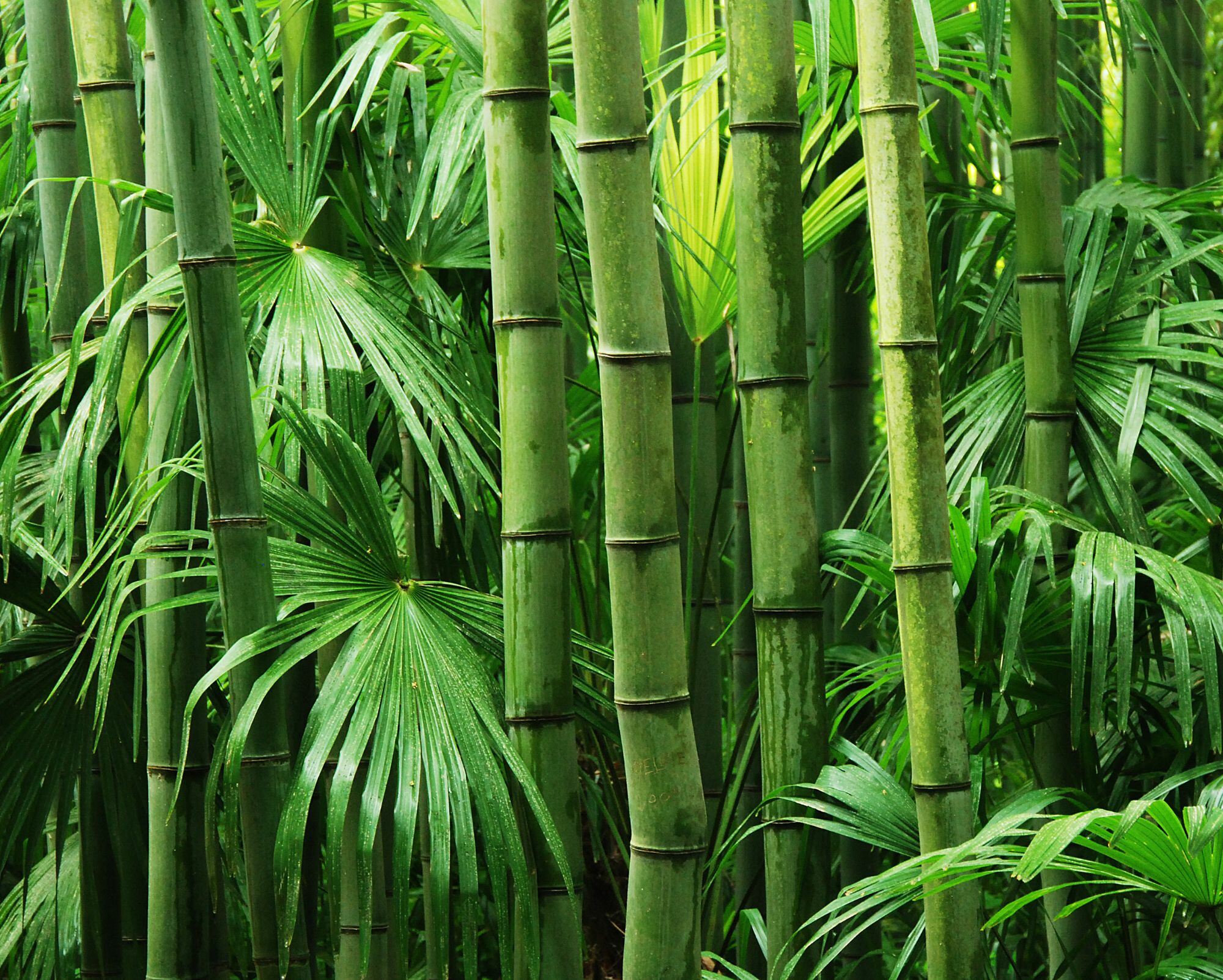
Advantages Of Bamboo Bedding
If you ask around for the best bedding suggestions, chances are you're going to get recommendations for Egyptian cotton sheets, organic cotton, or bamboo. Although each of these materials has its own advantages, bamboo has plenty of pros that you should consider.
Some of the most important advantages include temperature regulation, durability, and the fact that bamboo materials are hypoallergenic!
Temperature regulation
Bamboo sheets are excellent for temperature regulation. In fact, this type of bedding is highly breathable and allows air to circulate and wick away moisture.
These moisture-wicking properties help to keep hot sleepers cooler and keep others warm in the cold winter months. Since they are great for regulation, bamboo sheets are the perfect bedding for year-round use.
Comfort
Bamboo fabric is incredibly soft and smooth to the touch, which offers a luxurious and comfortable feel. Who wouldn't want that?
The silky texture of this bedding enhances the overall comfort of your bed. In turn, this promotes better, more restful sleep.
Hypoallergenic
Bamboo bedding is naturally hypoallergenic, making it a fantastic choice if you have allergies or sensitive skin. The bamboo fibres have a smooth surface that reduces irritation and prevents the build-up of dust mites, mould, and other common allergens.
Eco-friendly
Bamboo is a highly sustainable and eco-friendly material. In fact, it's one of the fastest-growing plants on earth and requires no pesticides or chemical fertilizers to thrive.
Bamboo also has a high yield per acre, meaning it can produce significantly more fibre compared to the traditional cotton plant while also using less water.
Because of this, choosing bamboo bedding supports sustainable practices and helps to reduce your environmental impact.
Durability
Bamboo is known for its long-lasting durability. This is thanks to its strong fibres that make it naturally resistant to the usual wear and tear of cotton bed sheets.
Bedding made from bamboo can withstand frequent washing without losing its softness or shape, which ensures you're getting the ultimate bang for your buck. So although bamboo may be an investment, you're sure to get ultimate value.
Naturally odourless
Bamboo has antimicrobial properties that help to prevent the growth of odour-causing bacteria. This means that your bedding will stay fresher for longer and need less frequent washing.
Of course, the natural odour resistance of bamboo also contributes to a cleaner and healthier sleeping environment.

How To Care For Bamboo Bedding
Caring for bamboo sheets and bedding is relatively easy. Still, by following a few simple guidelines, you can extend the life of your bedding and help it to retain its luxurious qualities.
Here are some of our top tips on how to care for your bamboo sheets and bedding:
-
Read the instructions: You should always refer to the care instructions that are provided by the manufacturer of your bedding. They may have specific instructions that can help to extend their life.
-
Machine wash on a gentle cycle: Always use a mild detergent and wash your bedding on a gentle cycle with lukewarm or cold water. You should avoid using bleach or harsh chemicals, as these can damage the fabric.
-
Avoid fabric softeners: Bamboo is already naturally soft! Fabric softeners can end up leaving residues on the fabric that can affect the breathability and absorbency.
-
Air dry: Heat can shrink or damage the fibres of your bedding. So instead of tumble drying your sheets, try to leave them to air dry in a warm spot. Don't leave them in direct sunlight, though, because this can cause sun bleaching.
-
Store your sheets properly: When you're not using your bedding, be sure to store it in a cool, dry place that is away from direct sunlight. Avoid storing it in plastic bags as bamboo benefits from proper airflow.
FAQs
Are bamboo sheets better than cotton sheets?
When you're choosing bedding, it's important to note the differences between bamboo and cotton sheets. Bamboo sheets are known for their softness and breathability and are often regarded as some of the most luxurious bedding options.
On the other hand, cotton sheets are also breathable and comfortable, but their softness will depend on their thread count. If you want quality bedding but still want cotton sheets, you'll want to look for high-quality cotton with a high thread count.
Do bamboo sheets get softer after washing them?
Bamboo sheets often become much softer after washing them, and the initial softness of the bedding will depend on the quality and manufacturing processes used.
However, bamboo typically becomes even softer and more comfortable the more you wash them. Washing can also help to remove any residual stiffness or coatings that may have been used, which will improve their feel over time.
Are there any drawbacks to using bamboo linens?
While bamboo linens have plenty of benefits, there are a few potential drawbacks to consider. Some people find that bamboo sheets tend to wrinkle more easily than cotton sheets, so you may need to iron them to keep their pristine, smooth look. Additionally, high-quality linen made from bamboo is much more expensive than standard cotton sheets.
Final Thoughts
Bamboo bedding offers a winning combination of eco-friendliness, comfort, and above all, luxury!
Its softness, breathability, and hypoallergenic properties make it a top choice for anyone who wants a healthier and more peaceful sleep experience. Plus, the sustainable nature of bamboo adds an extra layer of appeal, as it needs fewer resources and chemicals to produce and grow.
By embracing bamboo bedding, we not only enhance our own sleep quality and well-being but also contribute to a greener planet. So why settle for ordinary bedding when you can indulge in the extraordinary? Make the switch to bamboo-based bed linens today!
References
https://aslreviews.com/6-benefits-bamboo-bed-sheets/
https://thesleepdoctor.com/bedding-information/bamboo-vs-cotton-sheets/
https://cozyearth.com/blogs/news/the-pros-and-cons-of-bamboo-bed-sheets

